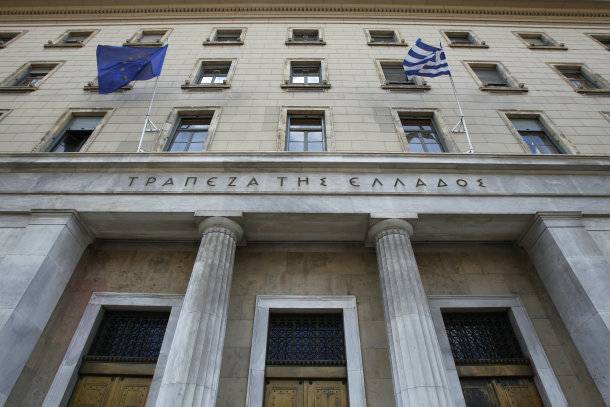The Bank of Greece requested that the Emergency Liquidity Assistance mechanism be activated, on Friday.
With the request, the BoG’s administration asked the ECB to guarantee extra liquidity to all four major Greece-based banks (Alpha Bank, Eurobank, Piraeus Bank and National Bank). Alpha Bank and Eurobank were the only Greek banks – until Friday afternoon – that had applied to the ELA mechanism. After successive meetings, however, a decision was made to formally request activation of the ELA mechanism for all four so-called systemic banks.
The request is a precautionary measure so the four banks — the dominant banking institutions in the country — do not face a liquidity squeeze. The recent participation of the banks in the government’s T-bill auction program, combined with rising political uncertainty ahead of a Jan. 25 snap election have reportedly heightened liquidity concerns for all four systemic banks.
The euro’s depreciation in the wake of a recent decision by Switzerland’s central bank, rekindled speculation over a so-called “Grexit” from the eurozone and increased outflow of deposits from Greek banks have aggravated the problem. Today’s estimated outflow of cash from Greek banks is estimated to have totalled between 600-700 million euros, a development partly attributed to the previous announcement by Alpha Bank and Eurobank regarding activation of the ELA mechanism — which exacerbated the trend.
What does borrowing from the ELA mean?
It should be noted that Greek banks are in need of borrowing from the ELA, and that this lending is quite expensive, since the interest rate is 1.55% compared to the minor ECB interest rate of 0.05%, since there are no guarantees acceptable by the ECB in order for said banks to turn to the ECB.
A bank is only led to the ELA when it has no other better choice in order to prevent a liquidity problem, and if there are no guarantees that are accepted by the market (in this case, the ECB).
Greek banks had resulted into activating the ELA in 2011 in order to combat the massive outflow of deposits, as well as suffering through the barrage that Greek government bonds underwent.
In May 2012, due to the great uncertainty of those elections, local banks raised 124 billion euros through the ELA and managed to intercept the unprecedented outflow of deposits. Since December 2012, the ELA, and specifically its connection to local banks started to diminish, while in May 2014, there was no ELA activation of Greek banks.
The dependency on liquidity from the European systems was reduced from 135 billion euros in June 2012, to 42.6 billion last September, thus showing the amazing progress of the country’s economy and its liquidity. Last Spring, banks returned to the international banking market for the first time since the crisis began.

































